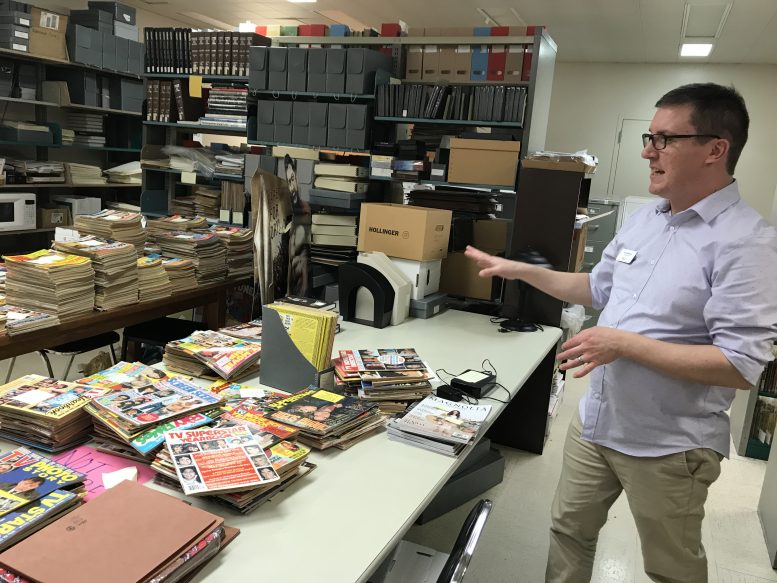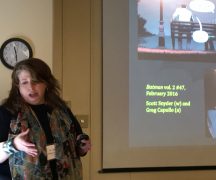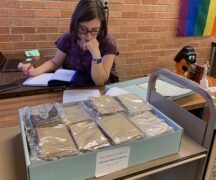By DAVID DUPONT
BG Independent News
Passions are running high in the world of romance fiction.
The decision by the Romance Writers of America to censor writer Courtney Milan who criticized another writer’s work for being a “racist mess” has embroiled the $1 billion business in controversy.
Two writers accused her of being unethical and destructive toward their careers, and other writers rushed to her defense.
The RWA later rescinded the finding that Milan, who is Chinese-American and had chaired its Ethics Committee, engaged in such conduct and much of its leadership has resigned.
Steven Ammidown, a manuscripts and outreach archivist at Bowling Green State University’s Browne Popular Culture Library, said: “I feel safe in saying this is one of the larger crises the organization has faced. There’s a lot of people who are very upset right now, and it’s hard to tell what it would take to fix it.”
That process could take years.
Since 1995 the Popular Culture Library has worked with the Romance Writers of America archiving its papers and the papers of its members. More than 40 writers’ papers are housed at the library as well as those of the organization. The library has more than 20,000 volumes of romance literature.
Last year Ammidown was honored by the RWA as its Librarian of the Year.
Now Ammidown is spending time over the holidays documenting this latest chapter in the RWA’s history. “It was incumbent on us to document it in some way.”
The controversy has played out largely over Twitter, where Milan first posted her criticisms, Facebook, and other social media platforms. Those are “so ephemeral,” Ammidown said. “We had to jump in and collect as many links to web pages as possible.”
Fortunately others have been compiling comments and accounts of the controversy which BGSU can collect and store in a digital archive.
This is much harder than working with physical documents. Those can be gathered and put on a shelf to be dealt with later. Digital material can disappear unless someone gets a screen capture before the page is deleted.
“A lot of websites have included tweets in their posts,” Ammidown said, “so we can at least have those major turning points.” (One example would be the site themarysue.com which published a commentary on the controversy with links to original documents.)
But the process for archiving digital material is still in its infancy. “We don’t have the capacity to preserve social media at this point,” he said. “We’re doing it a little by the seat of our pants and relying on the goodness of strangers to get this done.”
Multiple copies of screen grabs and downloads have to be made and then migrated into various formats. “It takes a lot of time and energy.”
The Milan affair brought to the surface issues that have long been roiling within the industry for years. Looking back as far as the 1980s, Ammidown said, “you see a lot of issues coming up again and again, racism, rape, birth control. They’ve always been under surface.”
In the last decade the romance literature industry “has grown to be more inclusive” both in terms of ethnic representation and gender identity, he said.
Those clinging to older attitudes have reacted negatively on Facebook.
“It’s been public sometimes and less public other times. This has a been a time when it’s reared its head,” he said. “The organization seems to recognize this is a breach of trust on a lot of levels that will have to be addressed.”
Regardless of how that happens, Ammidown said, the romance industry will continue to thrive.
Now with self-publishing and online publishing writers have more avenues than ever to get their work to the public. That growing fan base includes many longing to see themselves in the stories. “Absolutely more people are let in the door of romance, and they want to make sure the organization represents them in the way they feel they deserve.”
This will play out in social media and conferences in the coming months. Ammidown is confident that “people will find a way to work together and solve the issue.”





